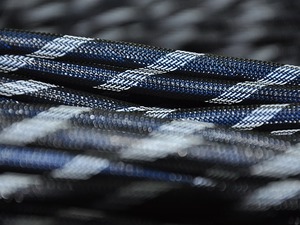 You may not have heard much about USB-C cables, but you will. They are the future of USB connectivity, and will ultimately replace both USB-A and USB-B cables, which are the ones you’re likely using right now to connect your various devices.
You may not have heard much about USB-C cables, but you will. They are the future of USB connectivity, and will ultimately replace both USB-A and USB-B cables, which are the ones you’re likely using right now to connect your various devices.
A few months ago, Google Engineer Brian Leung had a nasty encounter with a sub-standard USB-C cable that fried his Chromebook. Since that time, he has taken it upon himself to buy and test all of the USB-C cables sold on Amazon, and write reviews to warn potential purchasers away from potentially dangerous cables.
It was a lonely crusade, but definitely not in vain. Recently Amazon itself has joined in his fight, and has banned any and all USB-C cables found not to be compliant with the standards outlined by USB Implementers Forum Inc.
This is good news, but Brian Leung has urged people to continue to remain vigilant when making a cable purchase from Amazon, or any other online vendor to be sure that the cable you’re buying is indeed compliant with current manufacturing standards.
The reasoning behind this line of thinking is fairly obvious. While Amazon’s new stance is a great step, the Amazon marketplace is a big place, and it’s all but impossible to catch every potential offender until some cables have been sold, which of course, opens the door to potential damage if you’re not careful as a consumer.
In practical terms, the best way to avoid the issue is to steer clear of USB-C cables that are priced significantly below others you may find online. If you see what looks like too good a deal to be true, that’s because it probably is. Before you complete the purchase, you should definitely take a deeper look to be sure that the cable you’re considering meets the industry standard, or risk making a very expensive mistake.


